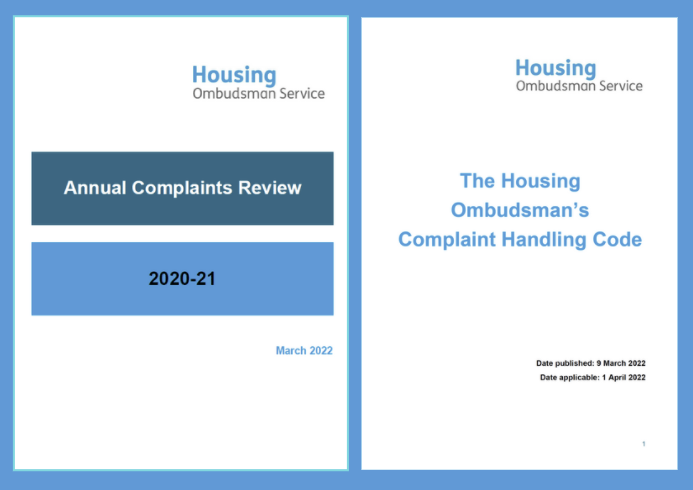First annual review of complaints examines sector’s performance
9 March 2022
We have published our first annual review of complaints, where we found 66% of investigations into complaint handling were upheld.

We have published our first annual review of complaints, where we found 66% of investigations into complaint handling were upheld. Poor complaint handling can considerably affect the trust residents have in their landlords to put things right, says the review and sets out the challenges for the social housing sector to overcome.
Our review also looks at the most common areas for complaint – repairs, anti-social behaviour and complaint handling – and provides the first analysis of the sector’s performance by type and size of landlord.
The review covers April 2020 to March 2021 and draws insight from:
- The annual landlord performance reports, published for the second time
- New annual surveys of the Ombudsman’s 600-member strong Resident Panel and landlords
- Complaint Handling Failure Orders issued in the final quarter of the year.
The individual landlord reports show an expected correlation between the number of complaints and landlord size. For complaints about property condition, our highest category of complaint, medium sized landlords have the largest rate at 34% compared to 32% for large landlords and 24% for small landlords. However, their upheld rate is the lowest at 39%. On complaints about complaint handling that account for 19% of all complaints determined and have a high overall uphold rate of 66%, the rate for medium sized landlords is noticeably lower at 39% compared to 73% for small landlords and 67% for large landlords.
In the first survey of our Resident Panel, members scored access to the complaints process well with 68% rating it as acceptable or above. However, 70% felt more could be done by landlords to improve their complaint handling and the same proportion felt landlords could do more to raise awareness. More than 77% of residents felt landlords could do more to learn from the complaints they receive. Landlords were surveyed about the Ombudsman’s Complaint Handling Code, which sets out good practice on effective complaint handling, with 94% saying it was easy to understand and 88% that it was easy to apply.
Based on the analysis, the annual review identifies the strategic and operational challenges for the social housing sector to overcome including:
- Not all landlords have adopted a positive complaint handling culture
- The need to increase trust among residents that complaining will make a difference
- Procedural failings with high uphold rates in complaint handling
- Inadequate records with poor record keeping being a common finding
- Missed or unproductive appointments
- Poor communication and lack of follow up.
Richard Blakeway, Housing Ombudsman, said: “Creating and embedding a culture that values complaints and gives them the appropriate level of priority requires strong leadership and management.
“Our analysis strongly suggests both complaint handling and service delivery need to be improved across our membership. The uphold rate of 66% on complaint handling sends a stark message that this is inadequate across our membership.
“I hope complaint handlers will find our analysis and the accompanying landlord reports of interest, but I strongly encourage senior leaders and governing bodies to use it to facilitate a wider discussion about their organisation’s success in handling complaints and how it can develop its approach.”
We have also conducted a review of our Complaint Handling Code, one year after it took effect. It has been strengthened to support a positive complaint handling culture by:
- Increasing the obligations on landlords to raise awareness of the complaints process and the Housing Ombudsman
- Setting good practice for a member of the governing body to be identified as having lead responsibility for complaints and for all landlord staff to have a standard objective related to effective complaint handling
- Reinforcing the importance of learning from complaints by being explicit that the self-assessment should be completed as an annual exercise.
The changes take effect from 1 April 2022 and landlords will have until 1 October 2022 to become compliant.
In addition the Ombudsman has reviewed the operation of its Complaint Handling Failure Orders and clarified that orders will be issued for failures to provide evidence of compliance with the Ombudsman’s orders as well as failure to provide evidence.
Revised Complaint Handling Code
Guidance on determinations of complaint handing failure and orders
